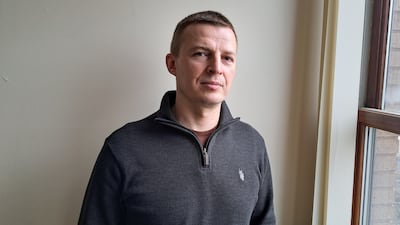It has been more than a year and a half since Tetiana last saw her husband, a member of Ukraine’s special forces who is fighting on the front line against Russia.
The former Kyiv resident, who asked that her last name be withheld out of concern for her husband's safety, fled Ukraine’s capital for the US city of Cleveland with her five-year-old son after Russian bombs started landing on residential areas.
“Every day you are worried, waiting for one text with two words: ‘I’m good.’ That’s very hard,” she says.
Tetiana says her husband has fought in Bakhmut, Kherson and Soledar, some of the most intense battles of the two-year war. These days, she says, he speaks of a desperate situation.
“When I speak with him, he says things are very bad – there is not enough petrol and Russia attacks every day,” she says.
“All of his missions are very dangerous. I really want him to come to America, but he says he can’t leave his country.”
Even though Tetiana and her son are thousands of kilometres from the front line, the sense of loss still hangs heavy.
“When we go to a festival, my son sees other kids and their dads,” she says. “He asks me why his dad can’t come here. I explain but he can’t understand.”
Tetiana is one of nearly half a million Ukrainians who have sought safety in the US over the past two years. As they watch the war drag on at home, ever-changing immigration requirements leave their futures in limbo.
Next month, as the first participants in Uniting for Ukraine – a federal programme that allows US citizens sponsor Ukrainians fleeing the war – will see their two-year immigration window begin to close. Many who arrived in the US after September last year do not have access to a host of assistance measures that ended that month.
This means that in places such as Cleveland, Ohio, where tens of thousands of Ukrainians have settled, the role of community facilitators is becoming even more important.
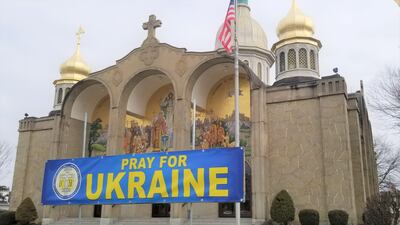




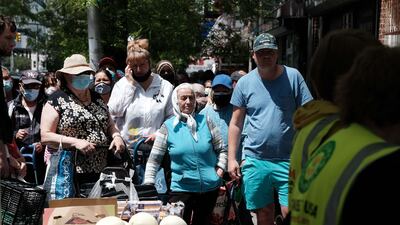
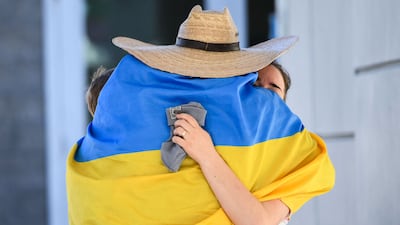
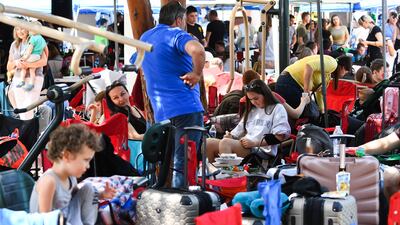
Ivan Prodanyk, originally from the Kyiv suburb of Irpin, works as a paralegal for the US Committee for Refugees and Immigrants. He says that despite support services for many ending last September, Ukrainians are still arriving in significant numbers.
“They cannot get Medicaid or food stamps, only is special circumstances” he says. “Some people I know are talking about going back.”
Others who have been in the US longer, he says, have been under pressure from employers, as their employment authorisation status period is coming to an end.
“It’s an issue for companies wondering if they should hire Ukrainians when they don’t know if they are permitted to work or not,” Mr Prodanyk explains.
While last week the US government announced Ukrainians in the US could extend their parole period for an additional two years, that does not come without challenges.
With a filing fee of $575 per person for those who are not considered low income, plus additional fees, the cost is placing major financial pressure on many. A family of four, for example, would have to find more than $2,300 to remain in the US legally.
Others have fallen victim to the infamous US healthcare industry. Last autumn, one uninsured Ukrainian woman in the state of Georgia was saddled with a $67,000 medical bill following gallstone surgery.
But although he says his children’s connections to Ukraine may be on the wane, for now, Mr Prodanyk and his family are staying put.
“I don’t want to have to be concerned about where my children are when there are bombs flying, if they are safe or not,” he says.
But others are finding they may be forced to leave.
When Mykola Vashchuk and his family returned to Ukraine following a short stay in the US in the autumn of 2022, they found that, unbeknownst to them, doing so voided their immigration status.
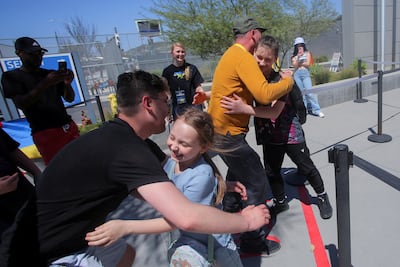
“The programme [for Ukrainian immigrants] was new [at the time], so people didn’t know some of the rules of it,” he says. “[My wife] was told that she could go back to Ukraine. Nobody knew how the rules worked.”
Though they were permitted to return to the US, where they now live in Cleveland, his wife and son have been issued with removal proceedings. That means they will face a court hearing later this year to decide whether they can stay or must go home.
Mr Vashchuk says the apartment block his family lived in Kyiv was hit by Russian bombs in December 2022.
The family has since applied for temporary protected status to help ensure they can stay in the US.
“If it’s approved, then the court case will be postponed,” he says.
Until then, Mr Vashchuk, a lawyer, finds his days are overflowing.
On Mondays, Wednesdays and Fridays he works as a case manager for a refugee agency assisting Ukrainians in Cleveland. On the other weekdays, he attends law school at a local college, while keeping tabs on a business back in Ukraine.
At the weekends, he and his wife make Ukrainian food that they sell with the help of one of Cleveland's several Ukrainian churches.
Why is the US struggling to pass Israel funding during the war in Gaza? – video
Meanwhile, US President Joe Biden has been convening with Republican Party leaders and others in a bid to push through a bill that would send $60 billion in funding to Ukraine, as the Russian invasion enters its third year.
Republicans in Congress, however, have so far thwarted the move, seeking to link any aid for Ukraine to improved security along the southern border.
Tetiana, whose husband’s relatives sponsored her and her son to come to Cleveland, knows better than most what is at stake.
“We hope America helps Ukraine. It’s so very hard on the front line because we don’t have enough of what we need,” she says.
“We ask America to support Ukrainians. Russia has so many more soldiers. We can’t do this. Without America, we will lose.”
